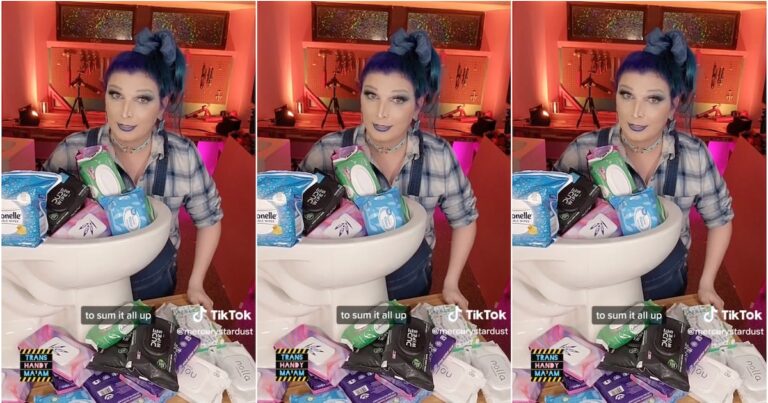
[ad_1]
Kids are disgusting, and what happens in bathrooms — especially on the toilet — is often equally gross. In a moment of necessity, it often feels cleaner, easier, or gentler to reach for plush, wet wipes than any dry toilet paper. Particularly when you’re cleaning the bottom of a freshly potty-trained kiddo, using wipes just comes naturally. And while we’ve all heard not to flush regular wipes or disinfectant wipes, there’s no harm in flushing a “flushable wipe,” right? I mean, are flushable wipes really flushable? Welp, let’s put it this way: Pull your plumber’s card from the recesses of your junk drawer, because you could wind up needing it sooner rather than later.
The environmental organization Green America breaks it down best. They explain that toilet paper is made to break apart and biodegrade as soon as it comes in contact with wetness. Obviously, wipes can’t do that, as their whole gimmick is wetness. Instead, wipes are made from synthetic materials like plastic or polyester. You already know from Earth Day science lessons that those materials take time to break down. Over time, the technology of wipe-making has gotten better, sure. That’s why companies seem to get away with calling some “flushable” while others are clearly labeled as not flushable. They still don’t break down as well as toilet paper, though.
“Are flushable wipes really flushable? You’re asking yourself the wrong question,” says Mercury Stardust, “The Trans Handy Ma’am,” adding, “It’s more about should you be using these, and the answer is, ‘No.’… I’ve tried testing it after six weeks, and it still doesn’t biodegrade like it claims it [is].”
Stardust has become quite the celebrity on TikTok, with many followers turning to her for guidance on every kind of home repair or DIY. In this video, she brings attention to a video made by a 30-year plumbing veteran (and other similar videos) who claims to have tested various wipes on clean pipes to see how well they do in your plumbing system.
The nameless plumber in question said that Charmin wipes performed the best. But, even after running through 70 feet of clean plumbing, the wipe was still partially intact. And as TikTok’s most trusted and well-loved handyperson points out, no one has clean plumbing. So, even the best-performing wipe in that “study” will struggle against the average family’s system.
Flushing any kind of wipes can cause major issues.
According to Green America, “flushable” wipes pose an even bigger problem than that crazy expensive plumbing bill you might have to pay. When wipes make it to the main system, they meet up with other “flushable” and “non-flushable” items like tampons, other sanitary items, and cooking greases to form what waste management personnel and experts refer to as “fatbergs.” These floating islands of gunk clog the sewer system and cause serious backups and damage. In 2018, New York City’s Department of Environmental Protection spent $19 million removing fatbergs from the city’s system. They said 90% of the fatbergs’ anatomy was wipes.
What makes a wipe “flushable”?
Literally nothing. According to Green America, there are zero standards on wipe flushability, which means that companies can claim their wipes are flushable whether they actually are or not. There was even a study out of Canada that tested more than 100 different wipes, and not a single one passed the flushability test — whether they were labeled flushable or not.
What should you use instead? Are biodegradable wipes flushable?
While biodegradable wipes might dissolve faster than “flushable” wipes, they still take longer than toilet paper. That means they’re still a risk factor for your plumbing and the city’s plumbing. The short answer: Don’t flush any wipes down the toilet.
If toilet paper isn’t cutting it, you have other options. Installing a bidet is easier and cheaper than ever, and while it may seem like newfangled technology to people in the U.S., rest assured that the rest of the world has used them for decades. If a bidet isn’t an option, you can still use wipes — just don’t flush them. Toss your used wipes in the bathroom trash with your tampons. (You know you shouldn’t flush tampons, either… right?)
[ad_2]